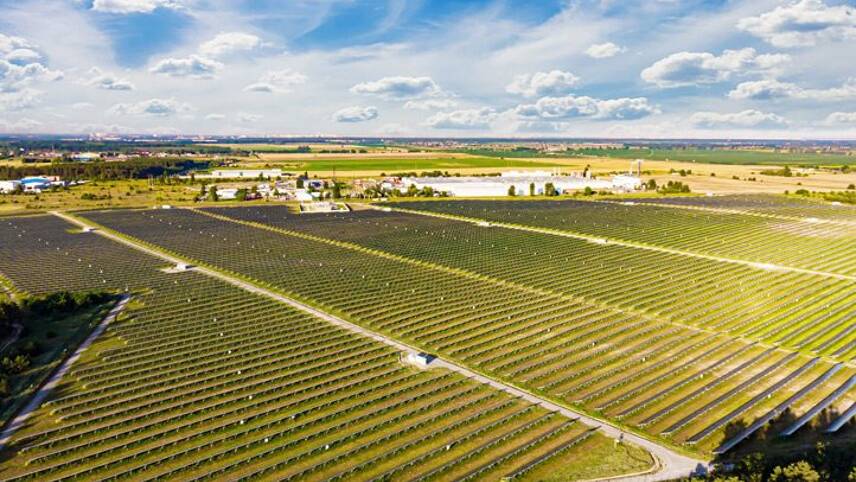Register for free and continue reading
Join our growing army of changemakers and get unlimited access to our premium content

The White Paper builds on numerous commitments outlined by Government in recent months
The Energy White Paper has been delayed numerous times in 2020, but the Government finally detailed what the strategy entails on Monday (14 December).
It builds on the Prime Minister’s Ten Point Plan for a Green Industrial Revolution and the National Infrastructure Strategy (NIS) in outlining how the nation plans to transform its power and heating systems to support the net-zero emissions target for 2050. Specifically, the Government believes new measures will help cut emissions from industry, transport and buildings by 230 million metric tonnes over the next 10 years – equivalent to taking 7.5 million petrol cars off the road permanently.
While the publication of the paper has been long-awaited, the new detail listed by the Government is surprisingly sparse. Instead, the White Paper reiterates numerous decarbonisation commitments that were revealed in both the Ten Point Plan and the NIS.
It does include a £6.7bn support system for fuel poor households that will run for six years. The package is designed to save families in old inefficient homes up to £400. In addition, the Warm Home Discount Scheme to 2026 will be delivered to cover 750,000 UK householders by giving them £150 off of electricity bills each winter. The White Paper also confirms that the £2bn Green Homes Grant announced in the summer will be extended by a further year, as envisioned in the Ten Point Plan.
In addition, installations of electric heat pumps are scheduled to grow from 30,000 per year to 600,000 by 2038. The White Paper also raises ambitions on industrial clusters, pledging to deliver four low-carbon clusters by 2030 and at least one net-zero variant by 2040.
This has spurred a race between clusters in the North West, Teesside, Humberside, Grangemouth, South Wales and Southampton to become the first to do so. BP, Eni, Equinor, Shell and Total have all signed up to spearhead the development of the Net-Zero Teesside project, which focuses heavily on the use of carbon capture, utilisation and storage technology (CCUS).
Elsewhere, Drax, Equinor and National Grid have published roadmaps fleshing out their plans to create the world’s first zero-carbon industrial hub in the Humber region by 2040. As part of the Industrial Clusters Mission, the Government opened two innovation funds in October aimed at helping businesses located in key industrial clusters to plan and deploy technology to help reach net-zero emissions by 2050. Up to £140m could be accessed by successful applicants. The North West cluster will focus heavily on hydrogen, with the North West Hydrogen Alliance’s (NWHA) chair professor Joe Howe claiming that attracting new talent to the sector is vital to the delivery of net-zero.
Click here to read the reaction to the Whitepaper from the green economy.
Business and Energy Secretary Alok Sharma said: “Today’s plan establishes a decisive and permanent shift away from our dependence on fossil fuels, towards cleaner energy sources that will put our country at the forefront of the global green industrial revolution.
“Through a major programme of investment and reform, we are determined to both decarbonise our economy in the most cost-effective way, while creating new sunrise industries and revitalising our industrial heartlands that will support new green jobs for generations to come.
“At every step of the way, we will place affordability and fairness at the heart of our reforms – unleashing a wave of competition so consumers get the best deals possible on their bills, while protecting the vulnerable and fuel poor with additional financial support. With this long-term plan, we are turning climate ambition into climate action – putting the UK firmly on the course to net-zero to end our contribution to climate change as we build back greener.”
The White Paper touches on various sectors in the UK and is designed to support up to 220,000 jobs in the next decade across infrastructure, hydrogen, and carbon capture. All non-domestic rented buildings, for example, will have to be at Energy Performance Certificate Band B by 2030.
The White Paper reiterates previous Government commitments, notably to establish 40GW of offshore wind capacity and to invest £1bn in carbon capture technologies.
As for hydrogen, the whitepaper refers to NIS which confirmed the £240m Net -Zero Hydrogen Fund that will support both “blue” hydrogen produced through CCS and “green” hydrogen from electrolysis. The Government is targeting 5GW of low-carbon hydrogen production capacity by 2030 – a mix of both blue and green forms – and a Hydrogen Strategy will be launched next year.
It also explains that the Government expects all new heating systems installed by the mid-2030s to be low carbon.
The Government will also work with North Sea oil and gas firms to help staff and communities mitigate the transition away from fossil fuels. New analysis by OGTC and Offshore Renewable Energy Catapult has outlined that new policy that attracts investment into the North Sea energy sector could support 232,000 jobs as part of the net-zero target for 2050. This would deliver a 66% increase on current levels.
In addition, the White Paper confirms that a UK Emissions Trading Scheme (UK ETS) will be established from 1 January 2021 to replace the current EU variant. No decision has been made on “preferred linking partners” for the scheme.
The government has also confirmed that it is to enter negotiations with EDF over the Sizewell C nuclear project in Suffolk. The Government wants to explore new funding options to enable investment in at least one nuclear power station by the end of this Parliament.
Click here to read the reaction to the Whitepaper from the green economy.
Matt Mace


Please login or Register to leave a comment.